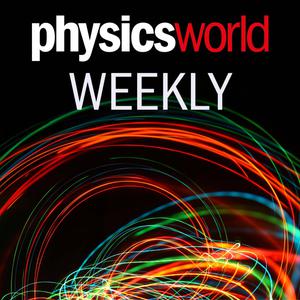
Physics World Weekly Podcast
Physics World
Physics World Weekly Podcast
- 38 minutes 50 secondsMark Thomson looks to the future of CERN and particle physics
This episode of the Physics World Weekly podcast features Mark Thomson, who will become the next director-general of CERN in January 2026. In a conversation with Physics World’s Michael Banks, Thomson shares his vision of the future of the world’s preeminent particle physics lab, which is home to the Large Hadron Collider (LHC).
They chat about the upcoming high-luminosity upgrade to the LHC (HL-LHC), which will be completed in 2030. The interview explores long-term strategies for particle physics research and the challenges of managing large international scientific organizations. Thomson also looks back on his career in particle physics and his involvement with some of the field’s biggest experiments.

This podcast is supported by Atlas Technologies, specialists in custom aluminium and titanium vacuum chambers as well as bonded bimetal flanges and fittings used everywhere from physics labs to semiconductor fabs.
30 January 2025, 2:27 pm - 35 minutes 17 secondsWhy electrochemistry lies at the heart of modern technology
This episode of the Physics World Weekly podcast features a conversation with Colm O’Dwyer, who is professor of chemical energy at University College Cork in Ireland and president of the Electrochemical Society.
He talks about the role that electrochemistry plays in the development of modern technologies including batteries, semiconductor chips and pharmaceuticals. O’Dwyer chats about the role that the Electrochemical Society plays in advancing the theory and practice of electrochemistry and solid-state science and technology. He also explains how electrochemists collaborate with scientists and engineers in other fields including physics – and he looks forward to the future of electrochemistry.

This podcast is supported by American Elements. Trusted by researchers and industries the world over, American Elements is helping shape the future of battery and electrochemistry technology.
23 January 2025, 2:25 pm - 41 minutes 33 secondsCeryx Medical: company uses bioelectronics to coordinate the heart and lungs
Heart failure is a serious condition that occurs when a damaged heart loses its ability to pump blood around the body. It affects as many as 100 million people worldwide and it is a progressive disease such that five years after a diagnosis, 50% of patients with heart failure will be dead.
The UK-based company Ceryx Medical has created a new bioelectronic device called Cysoni, which is designed to adjust the pace of the heart as a patient breathes in and out. This mimics a normal physiological process called respiratory sinus arrhythmia, which can be absent in people with heart failure. The company has just began the first trial of Cysoni on human subjects.
This podcast features the biomedical engineer Stuart Plant and the physicist Ashok Chauhan, who are Ceryx Medical’s CEO and senior scientist respectively. In a wide-ranging conversation with Physics World’s Margaret Harris, they talk about how bioelectronics could be used treat heart failure and some other diseases. Chauhan and Plant also chat about challenges and rewards of developing medical technologies within a small company.
16 January 2025, 2:49 pm - 48 minutes 8 secondsHumanitarian engineering can improve cancer treatment in low- and middle-income countries
This episode of the Physics World Weekly podcast explores how the concept of humanitarian engineering can be used to provide high quality cancer care to people in low- and middle-income countries (LMICs). This is an important challenge because today only 5% of global radiotherapy resources are located in LMICs, which are home to the majority of the world’s population.
Our guests are two medical physicists at the University of Washington in the US who have contributed to the ebook Humanitarian Engineering for Global Oncology. They are Eric Ford, who edited the ebook and Afua Yorke, who along with Ford wrote the chapter “Cost-effective radiation treatment delivery systems for low- and middle-income countries”.
They are in conversation with Physics World’s Tami Freeman.
9 January 2025, 2:55 pm - 37 minutes 6 secondsInternational Year of Quantum Science and Technology: our celebrations begin with a look at quantum networks and sensors
As proclaimed by the United Nations, 2025 is the International Year of Quantum Science and Technology, or IYQ for short. This year was chosen because it marks the 100th anniversary of Werner Heisenberg’s development of matrix mechanics – the first consistent mathematical description of quantum physics.
Our guest in this episode of the Physics World Weekly podcast is the Turkish quantum physicist Mete Atatüre, who heads up the Cavendish Laboratory at the UK’s University of Cambridge.
In a conversation with Physics World’s Katherine Skipper, Atatüre talks about hosting Quantour, the quantum light source that is IYQ’s version of the Olympic torch. He also talks about his group’s research on quantum sensors and quantum networks.
- There is much more about Heisenberg’s mathematical breakthrough in quantum physics here: “Return to Helgoland: celebrating 100 years of quantum mechanics”.
This article forms part of Physics World‘s contribution to the 2025 International Year of Quantum Science and Technology (IYQ), which aims to raise global awareness of quantum physics and its applications.
Stayed tuned to Physics World and our international partners throughout the next 12 months for more coverage of the IYQ.
Find out more on our quantum channel.
2 January 2025, 1:45 pm - 40 minutes 39 secondsThe physics of ice cream: food scientist Douglas Goff talks about this remarkable material
December might be dark and chilly here in the northern hemisphere, but it’s summer south of the equator – and for many people that means eating ice cream.
It turns out that the physics of ice cream is rather remarkable – as I discovered when I travelled to Canada’s University of Guelph to interview the food scientist Douglas Goff. He is a leading expert on the science of frozen desserts and in this podcast he talks about the unique material properties of ice cream, the analytical tools he uses to study it, and why ice cream goes off when it is left in the freezer for too long.
26 December 2024, 2:46 pm - 39 minutes 18 secondsMikhail Lukin and Dolev Bluvstein explain how they used trapped atoms to create 48 logical qubits
One half of the Physics World 2024 Breakthrough of the Year has been awarded to Mikhail Lukin, Dolev Bluvstein and colleagues at Harvard University, the Massachusetts Institute of Technology and QuEra Computing for demonstrating quantum error correction on an atomic processor with 48 logical qubits.
In this episode of the Physics World Weekly podcast, Bluvstein and Lukin explain the crucial role that error correction is playing in the development of practical quantum computers. They also describe how atoms are moved around their quantum processor and why this coordinated motion allowed them to create logical qubits and use those qubits to perform quantum computations.
The Physics World 2024 Breakthrough of the Year also cites Hartmut Neven and colleagues at Google Quantum AI and their collaborators for implementing quantum error correction below the surface code threshold in a superconducting chip. Neven talks about his team’s accomplishments in this podcast.

Physics World‘s coverage of the Breakthrough of the Year is supported by Reports on Progress in Physics, which offers unparalleled visibility for your ground-breaking research.
19 December 2024, 4:55 pm - 32 minutes 50 secondsHartmut Neven talks about Google Quantum AI’s breakthrough in quantum error correction
One half of the Physics World 2024 Breakthrough of the Year has been awarded to Hartmut Neven and colleagues at Google Quantum AI and their collaborators for implementing quantum error correction below the surface code threshold in a superconducting chip.
In this episode of the Physics World Weekly podcast, Neven talks about Google’s new Willow quantum processor, which integrates 105 superconducting physical qubits. He also explains how his team used these qubits to create logical qubits with error rates that dropped exponentially with the number of physical qubits used. He also outlines Googles ambitious plan to create a processor with 100, or even 1000, logical qubits by 2030.
The Physics World 2024 Breakthrough of the Year also cites Mikhail Lukin, Dolev Bluvstein and colleagues at Harvard University, the Massachusetts Institute of Technology and QuEra Computing for demonstrating quantum error correction on an atomic processor with 48 logical qubits. Lukin and Bluvstein explain how they did it in this podcast.

Physics World‘s coverage of the Breakthrough of the Year is supported by Reports on Progress in Physics, which offers unparalleled visibility for your ground-breaking research.
19 December 2024, 4:55 pm - 28 minutes 24 secondsExploring this year’s best physics research in our Top 10 Breakthroughs of 2024
This episode of the Physics World Weekly podcast features a lively discussion about our Top 10 Breakthroughs of 2024, which include important research in nuclear physics, quantum computing, medical physics, lasers and more. Physics World editors explain why we have made our selections and look at the broader implications of this impressive body of research.
The top 10 serves as the shortlist for the Physics World Breakthrough of the Year award, the winner of which will be announced on 19 December.
Links to all the nominees, more about their research and the selection criteria can be found here.

Physics World‘s coverage of the Breakthrough of the Year is supported by Reports on Progress in Physics, which offers unparalleled visibility for your ground-breaking research.
12 December 2024, 3:00 pm - 27 minutes 54 secondsHow the UK Metamaterials Network supports scientific and commercial innovation
This episode of the Physics World Weekly podcast explores the science and commercial applications of metamaterials with Claire Dancer of the University of Warwick and Alastair Hibbins of the University of Exeter.
They lead the UK Metamaterials Network, which brings together people in academia, industry and governmental agencies to support and expand metamaterial R&D; nurture talent and skills; promote the adoption of metamaterials in the wider economy; and much more.
According to the network, “A metamaterial is a 3D structure with a response or function due to the collective effect of meta-atom elements that is not possible to achieve conventionally with any individual constituent material”.
In a wide-ranging conversation with Physics World’s Matin Durrani, Hibbins and Dancer talk about exciting commercial applications of metamaterials including soundproof materials and lenses for mobile phones – and how they look forward to welcoming the thousandth member of the network sometime in 2025.
5 December 2024, 4:41 pm - 36 minutes 44 secondsAstronomers can play an important role in explaining the causes and consequences of climate change, says astrophysicist
Climate science and astronomy have much in common, and this has inspired the astrophysicist Travis Rector to call on astronomers to educate themselves, their students and the wider public about climate change. In this episode of the Physics World Weekly podcast, Rector explains why astronomers should listen to the concerns of the public when engaging about the science of global warming. And, he says the positive outlook of some of his students at the University of Alaska Anchorage makes him believe that a climate solution is possible.
Rector says that some astronomers are reluctant to talk to the public about climate change because they have not mastered the intricacies of the science. Indeed, one aspect of atmospheric physics that has challenged scientists is the role that clouds play in global warming. My second guest this week is the science journalist Michael Allen, who has written a feature article for Physics World called “Cloudy with a chance of warming: how physicists are studying the dynamical impact of clouds on climate change”. He talks about climate feedback mechanisms that involve clouds and how aerosols affect clouds and the climate.
- Rector is editor of the book Climate Change for Astronomers: Causes, consequences, and communication. It was published earlier this year by IOP Publishing – which also brings you Physics World
28 November 2024, 3:09 pm - More Episodes? Get the App
Your feedback is valuable to us. Should you encounter any bugs, glitches, lack of functionality or other problems, please email us on [email protected] or join Moon.FM Telegram Group where you can talk directly to the dev team who are happy to answer any queries.
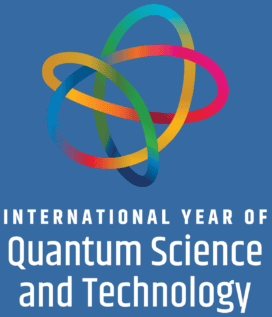
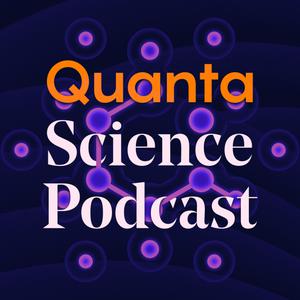 Quanta Science Podcast
Quanta Science Podcast
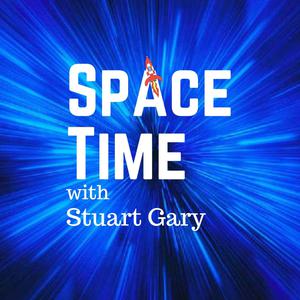 SpaceTime with Stuart Gary
SpaceTime with Stuart Gary
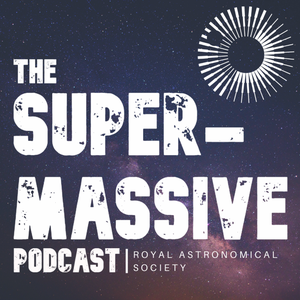 The Supermassive Podcast
The Supermassive Podcast
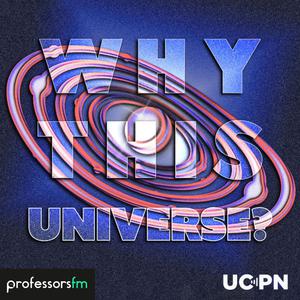 Why This Universe?
Why This Universe?
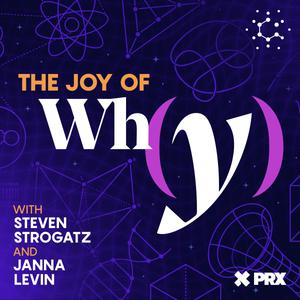 The Joy of Why
The Joy of Why
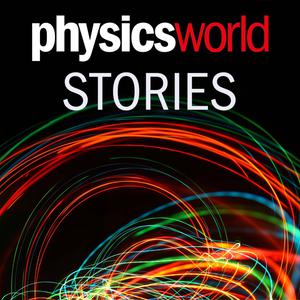 Physics World Stories Podcast
Physics World Stories Podcast